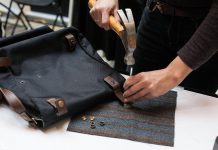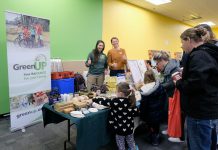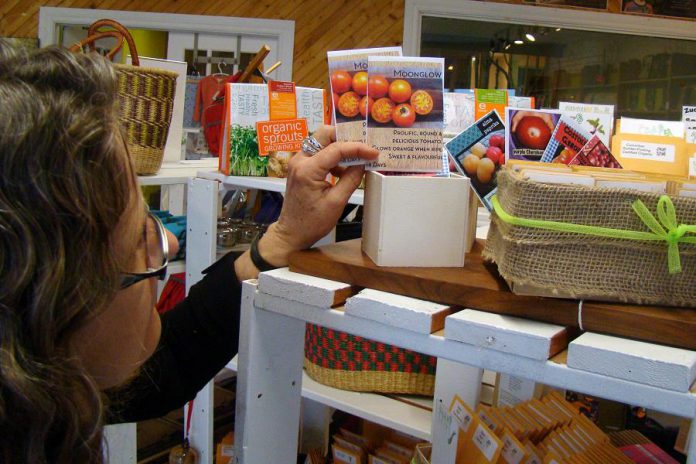
This past Sunday, gardeners and growers didn’t let the cold weather stop them from dreaming of green things to come. Seedy Sunday was the place to be to stock up on a large variety of local and heirloom seeds for a diversity of vegetables, flowers, and herbs.
Seedy Sunday is an annual event presented with support from Nourish and the City of Peterborough where — along with workshops and informative booths from local organizations and vendors — attendees are able to chose from organic, untreated, locally adapted seeds, and unique varieties, some of which you may not have seen before.
“I found these really great Mouse Melon seeds,” shares backyard gardener Kathryn Bahun. “They are related to cucumbers but look like little watermelons; my kids are going to love them!”
If you purchased or traded seeds at Seedy Sunday this past weekend (March 12), you’re likely all stocked up and eager to get started. If you are still looking, there are lots of ways to acquire seeds.
Check out the Farmers’ Market in the upcoming weeks, trade favourites with your neighbours, or stop into the GreenUP Store, which carries a variety of fresh, local, and organically grown vegetable seeds as well as kits for growing vegetable mixes, herbs, micro-greens, and edible flowers.
Once you have your seeds in hand, there is no need to wait until the ground thaws. You can get growing indoors within the next few weeks; in fact, it’s a good idea to start seeds with longer maturation times to ensure you’ll have a harvest in good time this year.
Hot peppers, brassicas, and onions should be started about six weeks prior to the last frost date, which on average is May 18th for the Peterborough region. Tomatoes, basil, eggplant, and okra can be started within about four weeks of the frost date, and cucumbers, squash, and melons can be germinated indoors about two weeks from last frost date.
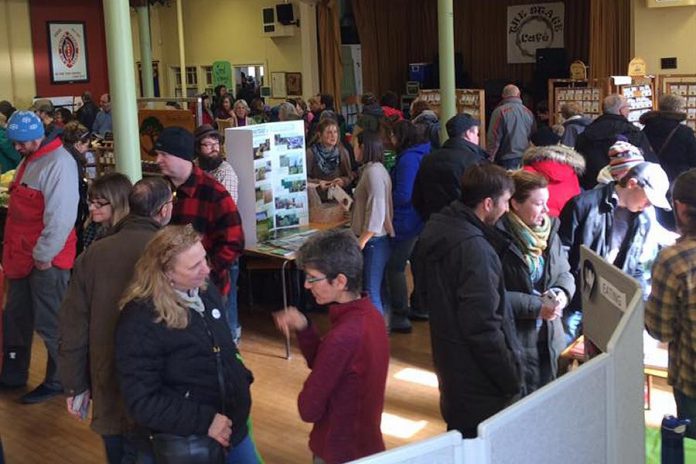
Choosing the right soil is very important for starting successful seedlings indoors. Soil-less medium, also commonly called Pro-mix, is the best option. It is light and contains minerals which to allow your seedlings to get off to good start.
When it comes to containers for planting, your options are limitless. Get creative and use household items like egg cartons, paper towel rolls, or milk cartons. As long as the container allows for good drainage, almost anything can work. There are a wide variety of commercially available containers that allow planting directly into the ground when it’s time to transfer plants outdoors.
Fill your containers with moist soil-less medium and create a small divot in the soil to contain your seeds. Place one or two seeds in each divot. Cover lightly and label the containers so they won’t get mixed up. Place your containers in a warm, sunny window — south facing is best.
Once your seedlings have emerged from the soil, ensure that your containers have good airflow around them. Placing a fan near your seed trays will prevent dampening-off disease or mold from forming. Another advantage is that doing this is it allows your plants to become stronger and more resistant to wind for when they’re transplanted outside.
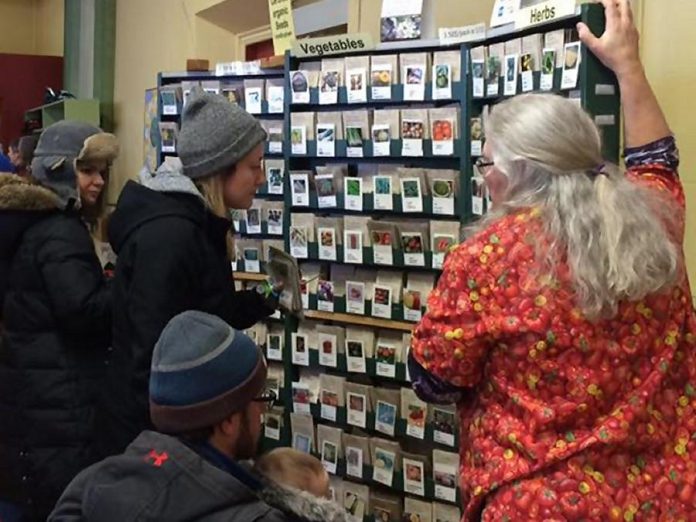
Some seedlings, like tomatoes, may outgrow their pots and will need to be moved to a more spacious, temporary home. As before, you can be creative with your pots as long as there is enough drainage. And when transplanting, you can combine peat moss, vermiculite, compost, and potting soil to provide ample nutrients for your growing seedlings.
Before your plants go in the ground, it’s important to harden them off. Hardening off allows them to adjust to the harsh outdoor elements and ensures a better rate of survival. On warm spring days, over the course of a week or two, place plants outside in filtered sunlight, gradually increasing the amount of time they spend outside, and in cooler temperatures.
After the threat of frost has passed, your next and final step is transplanting outdoors. Choose a location that’s well suited to each type of plant you’re growing. Planting instructions, including light and spacing requirements, are typically found on the back of most seed packets.
Stop into the GreenUP Store at 378 Aylmer Street North in downtown Peterborough to pick up untreated, non-GMO seeds and get started on your indoor planting today. We have many seeds in stock including several herbs, many varieties of beans, and lots of vegetables including beets, cucumber, zucchini, squash, radish, and more.
For more tips on seed starting and growing your own food, check out upcoming Nourish workshops on seed starting and growing gardens at nourishproject.ca/events. If you’re without space for a garden at your home and are looking for a great place to grow this season, contact Nourish at growing@nourishproject.ca to find a community garden near you.


















